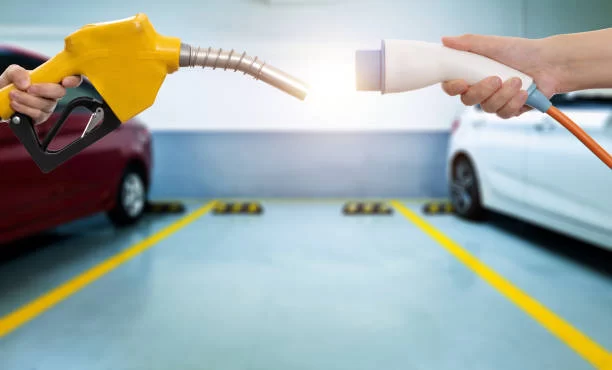Hybrid Power Solution: Bridging the Gap between Traditional and Renewable Energy
In the pursuit of sustainable energy solutions, the concept of hybrid power systems has emerged as a pivotal bridge between traditional fossil fuel-based energy sources and renewable energy technologies. These systems integrate multiple energy sources—such as solar, wind, hydroelectric, and conventional generators—into cohesive frameworks that optimize energy production, enhance grid stability, and reduce environmental impact. This article explores the principles, benefits, technological advancements, and future potential of hybrid power solutions in transitioning towards a cleaner and more sustainable energy landscape.

Understanding Hybrid Power Systems
Hybrid power systems combine the strengths of different energy sources to overcome the limitations inherent in individual technologies. For instance, renewable energy sources like solar and wind are intermittent, dependent on weather conditions, and often exhibit variability in output. On the other hand, conventional generators, fueled by diesel, natural gas, or other fuels, provide consistent power but contribute to carbon emissions and environmental degradation.
Hybrid power systems combine the strengths of different energy sources to overcome the limitations inherent in individual technologies. For instance, renewable energy sources like solar and wind are intermittent, dependent on weather conditions, and often exhibit variability in output. On the other hand, conventional generators, fueled by diesel, natural gas, or other fuels, provide consistent power but contribute to carbon emissions and environmental degradation.
By integrating renewable energy sources with conventional generators or energy storage systems, hybrid power systems offer several advantages:
Enhanced Reliability and Stability: Hybrid systems provide a reliable and stable power supply by leveraging complementary energy sources. Renewable sources can be paired with backup generators to ensure continuous electricity supply, especially in remote or off-grid locations where reliability is crucial.
Optimized Energy Efficiency: Hybrid systems optimize energy production by utilizing renewable sources whenever available and supplementing with conventional generators or stored energy during periods of low renewable output. This approach maximizes energy efficiency and minimizes reliance on fossil fuels.
Reduced Environmental Impact: By reducing dependence on fossil fuels and integrating clean energy sources, hybrid power systems contribute to mitigating greenhouse gas emissions and environmental pollution. This aligns with global efforts to combat climate change and promote sustainable development.
Technological Advancements
Advancements in technology play a pivotal role in the evolution and effectiveness of hybrid power solutions:
Smart Grid Integration: Integration with smart grid technologies enables efficient management of energy flow, real-time monitoring, and demand-response capabilities. Smart grid features optimize energy distribution, improve grid stability, and facilitate seamless integration of renewable energy sources into existing infrastructure.
Energy Storage Systems: Advancements in energy storage technologies, such as lithium-ion batteries and flow batteries, enhance the storage capacity and efficiency of hybrid power systems. Energy storage systems store excess energy from renewable sources for use during periods of low generation or high demand, thereby enhancing system reliability and flexibility.
Microgrid Development: Hybrid power systems often operate within microgrids—localized grids that can operate independently or in conjunction with the main grid. Microgrid technologies enable communities, industries, and remote areas to achieve energy independence, improve resilience against power outages, and optimize energy consumption patterns.
Hybridization of Conventional Plants: Existing fossil fuel power plants are increasingly being hybridized with renewable energy sources. This transition reduces operational costs, enhances plant efficiency, and extends the lifespan of existing infrastructure while reducing environmental impact.
Benefits Across Sectors
Hybrid power solutions offer diverse benefits across various sectors:
Industrial Applications: Industries benefit from reduced energy costs, enhanced reliability, and improved sustainability credentials through the adoption of hybrid power systems. These systems support industrial processes while minimizing carbon footprint and environmental compliance risks.
Remote and Off-Grid Communities: Hybrid power systems are particularly beneficial for remote and off-grid communities lacking access to reliable electricity. These systems provide a sustainable and cost-effective alternative to traditional diesel generators, improving quality of life and supporting economic development.
Urban Infrastructure: In urban settings, hybrid power systems contribute to grid stability, load management, and resilience against power disruptions. They enable cities to meet growing energy demands sustainably while integrating renewable energy into urban infrastructure planning.
Future Potential and Sustainability
Looking ahead, the future potential of hybrid power solutions is promising:
Technological Innovation: Continued advancements in renewable energy technologies, energy storage solutions, and smart grid capabilities will further enhance the efficiency and scalability of hybrid power systems.
Policy Support: Supportive policies and incentives promoting renewable energy integration and carbon reduction goals will accelerate the adoption of hybrid power solutions globally.
Energy Transition: Hybrid power systems play a crucial role in facilitating the transition towards a low-carbon economy and achieving renewable energy targets outlined in international agreements such as the Paris Agreement.
Conclusion
Hybrid power solutions represent a significant step towards achieving a sustainable and resilient energy future. By combining the reliability of conventional energy sources with the environmental benefits of renewable energy technologies, these systems bridge the gap between tradition and innovation. As global energy demands continue to rise, the integration of hybrid power solutions will play an increasingly vital role in meeting these demands sustainably, reducing carbon emissions, and fostering economic growth. Embracing these technologies and advancing their deployment will pave the way towards a cleaner, more sustainable energy landscape for generations to come.

